This article gives you detailed information on how to source 0.03mm Stainless Steel Foil, including 0.03mm 304 Stainless Steel, 0.03mm 301 Stainless Steel, 0.03mm 316 Stainless Steel, 0.03mm 316L Stainless Steel. Stainless Steel and details on packaging, national standards and how to find a reliable 0.03mm stainless steel foil wholesaler or manufacturer.
Yaoyi Stainless Steel Co. Ltd is the ideal choice for your 301 stainless steel foil supplier. Here are some of the reasons why you should choose Yaoyi:
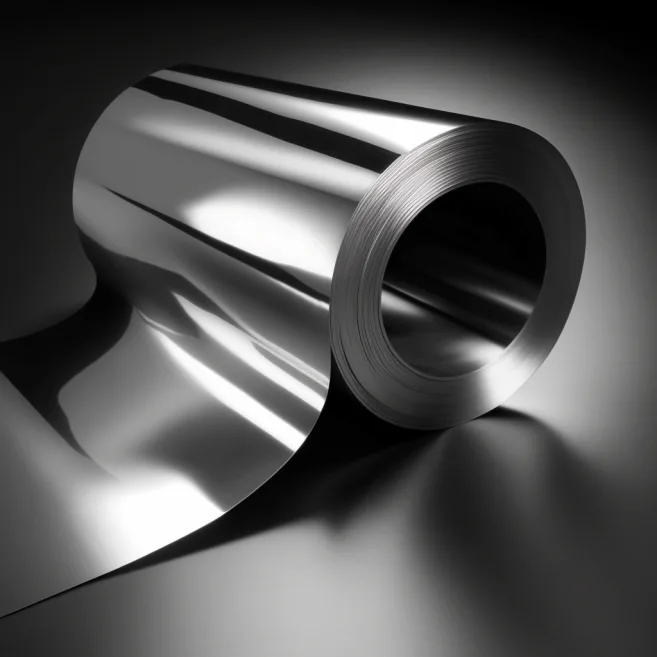
Besides the 0.01~0.05mm stainless steel foil, you may need to purchase other 304 stainless steel products from China, please contact us if you have any questions.
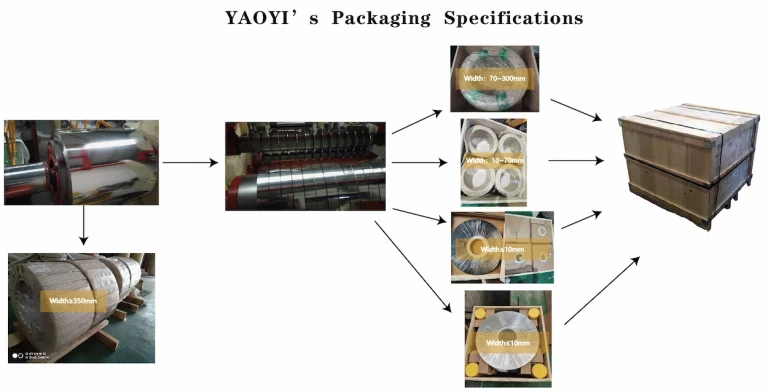
Producing 0.03mm stainless steel foil involves several steps, including melting, hot rolling, cold rolling, and annealing. A 0.03mm stainless steel foil manufacturer must have specialized equipment to achieve the desired thickness and quality. Here’s an overview of the process and the equipment involved:
Melting: The production of 0.03mm SS foil begins with the melting of stainless steel scrap and alloying elements in an electric arc furnace. Once the stainless steel is molten, it is refined to achieve the desired chemical composition.
Casting: The molten stainless steel is cast into slabs or billets through a continuous casting process. These slabs or billets are then cooled and prepared for hot rolling.
Hot Rolling: The slabs or billets are heated to a high temperature, typically around 1,100-1,300°C (2,010-2,370°F), and then passed through a series of rolling mills to reduce their thickness. The hot-rolled stainless steel is usually several millimeters thick at this stage.
Equipment: Reheating furnaces, roughing mills, and finishing mills.
Pickling: After hot rolling, the stainless steel is pickled to remove surface scale and impurities. This is done by immersing the hot-rolled steel in an acid solution, typically a mixture of nitric and hydrofluoric acids.
Equipment: Pickling lines with acid tanks and rinsing sections.
Cold Rolling: The hot-rolled stainless steel is then subjected to cold rolling to further reduce its thickness. A 0.03mm stainless steel foil manufacturer uses cold rolling to achieve the desired 0.03mm SS foil thickness. Cold rolling is done at or near room temperature, which helps achieve a smoother surface finish and improved dimensional accuracy. The stainless steel is passed through a series of cold rolling mills, gradually reducing the thickness.
Equipment: Cold rolling mills, tension leveling lines, and edge trimming equipment.
Annealing: After cold rolling, the 0.03mm stainless steel foil is annealed to restore its ductility and relieve internal stresses. Annealing is performed in a controlled atmosphere furnace to prevent oxidation and discoloration.
Equipment: Bright annealing furnaces or controlled atmosphere annealing furnaces.
Slitting and Cutting: The annealed 0.03mm SS foil is then slit or cut to the desired width and length, as specified by the customer.
Equipment: Slitting lines and cutting machines.
By employing these processes and specialized equipment, a 0.03mm stainless steel foil manufacturer can produce high-quality, ultra-thin stainless steel foils for various applications.
Learn more about the How to Find the Best Deals on 316 Stainless Steel Foil Price.
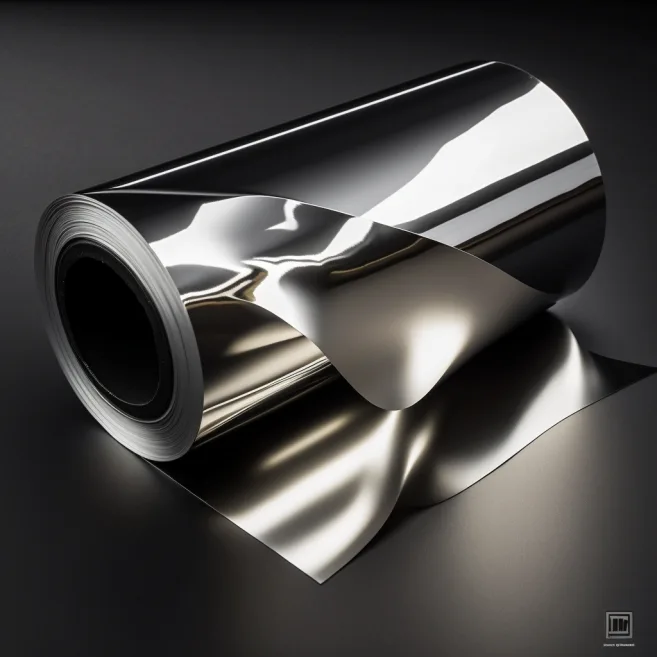
Packing 0.03mm ss foil requires careful handling to ensure the material remains in pristine condition during transportation and storage. The packing standards for 0.03mm stainless steel foil may vary based on width, region, and customer requirements. Here are some general guidelines for packing the 0.03mm stainless steel sheet:
1.Protective Layers: The first step in packing 0.03mm stainless steel foil is to cover the material with a protective layer. This can be a plastic film, paper interleave, or a combination of both. The protective layer helps prevent scratches, dirt, and fingerprints from damaging the surface of the foil.
2.Rolling or Flat Packaging: Depending on the width and length of the 0.03mm stainless steel foil, it can be either rolled into a coil or packed flat. For narrow-width foils, rolling into a coil is a common method, as it saves space and makes transportation more manageable. For wider foils or cut-to-length sheets, flat packaging in wooden cases or pallets is preferred.
3.Padding and Securing: If the 0.03mm stainless steel sheet is packed flat, it’s essential to add padding between individual sheets and secure them using straps or bands to minimize movement during transportation. Foam, cardboard, or other cushioning materials can be used as padding.
4.Sealing and Waterproofing: To protect the 0.03mm stainless steel foil from moisture and corrosion, it’s crucial to seal the package with a waterproof material. This can be achieved using stretch wrap, plastic sheeting, or a combination of both. The package should be sealed tightly to prevent water ingress.
5.Wooden Cases or Pallets: The rolled or flat-packed 0.03mm stainless steel foil should be placed in wooden cases or on pallets for added protection and easier handling. The cases or pallets must be sturdy enough to bear the weight of the material without collapsing.
6.Labeling: Clearly label the package with relevant information, such as the 0.03mm stainless steel foil wholesale price, product dimensions, weight, grade, and any specific handling instructions. This ensures proper identification and handling during transportation and storage.
By following these packing guidelines, you can ensure that the 0.03mm stainless steel sheet reaches its destination in excellent condition, maintaining its quality and value.
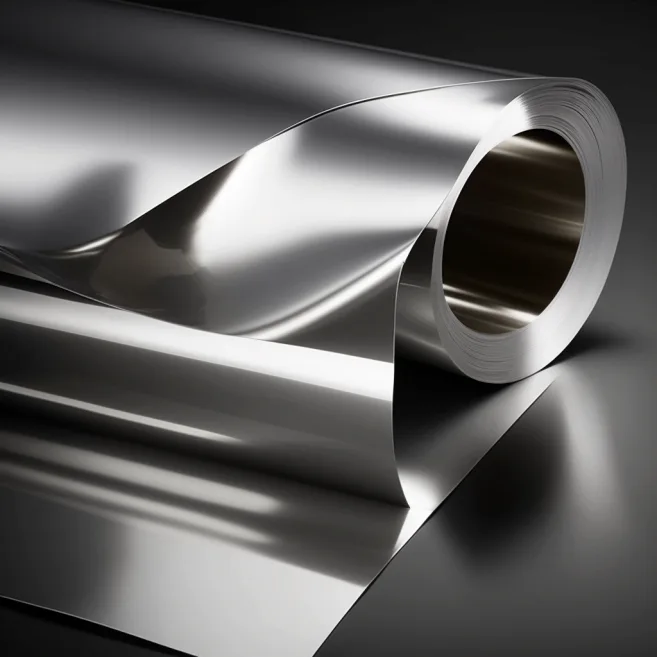
When looking for a reliable supplier of 0.03mm stainless steel coils, it’s essential to differentiate between a manufacturer and a wholesaler. Here are some tips to help you identify whether the other party is a 0.03mm stainless steel coil manufacturer or wholesaler, considering the different grades such as 0.03mm 304 Stainless Steel, 0.03mm 301 Stainless Steel, 0.03mm 316 Stainless Steel, and 0.03mm 316L Stainless Steel:
Factory Facilities: A manufacturer typically has their own production facilities where they produce stainless steel coils in various grades. Check if the other party has a factory or production line, and if they are willing to share pictures or videos of their facilities.
Production Capabilities: Manufacturers usually have a wider range of production capabilities, including different grades like 0.03mm 304 Stainless Steel, 0.03mm 301 Stainless Steel, 0.03mm 316 Stainless Steel, and 0.03mm 316L Stainless Steel. They may also offer custom sizes, thicknesses, and finishes according to your requirements. Wholesalers, on the other hand, may have limited stock and fewer customization options.
Certifications and Quality Control: Manufacturers often have industry certifications and strict quality control measures in place to ensure the production of high-quality stainless steel coils. Check for certifications such as ISO, ASTM, or any other relevant industry standards.
Customization and Lead Time: A manufacturer is more likely to offer customization options, such as specific material grades, dimensions, and finishes. They may also have shorter lead times, as they produce the stainless steel coils themselves, whereas wholesalers might need to source the coils from a manufacturer before shipping them to you.
Pricing: Manufacturers generally offer more competitive prices, as they produce the stainless steel coils themselves, eliminating the need for a middleman. Wholesalers may have higher prices due to their markup and additional costs associated with sourcing and storing the coils.
By considering these factors, you can determine if the other party is a 0.03mm stainless steel coil manufacturer or wholesaler. A direct relationship with a manufacturer often offers better pricing, customization options, and shorter lead times, which can be beneficial for your business needs.
0.03mm 304, 301, 316, and 316L stainless steel foils are thin, flexible sheets of stainless steel with a thickness of 0.03 millimeters (30 microns). These foils are used in various applications due to their unique properties, which vary depending on the grade of stainless steel.
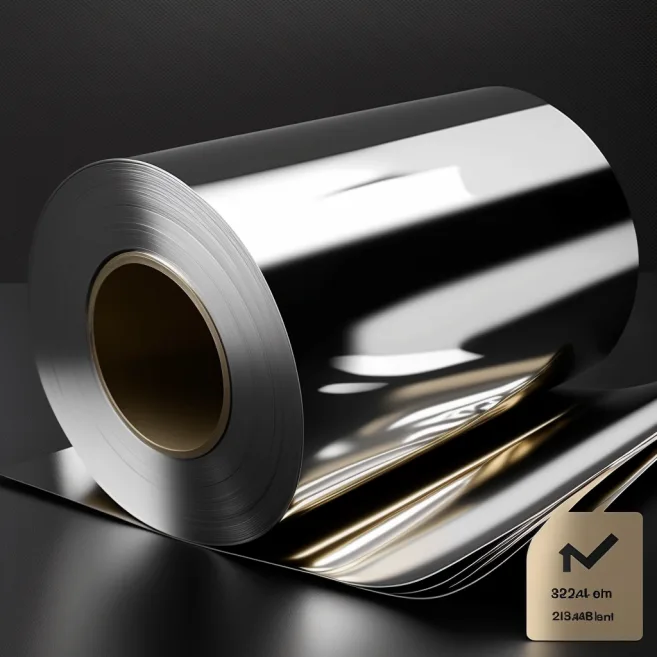
0.03mm 304 Stainless Steel Foil: 304 stainless steel is the most common grade of stainless steel, known for its excellent corrosion resistance, good formability, and weldability. It contains 18% chromium and 8% nickel.
Applications: Food processing equipment, kitchen appliances, sinks, automotive trim, architectural panels, chemical containers, and medical equipment.
Features: Excellent corrosion resistance, formability, and weldability. It is easy to clean and has a good aesthetic appearance.
0.03mm 301 Stainless Steel Foil: 301 stainless steel is an austenitic stainless steel with good corrosion resistance and high strength due to its slightly lower chromium and nickel content compared to 304 stainless steel. It is often used for applications requiring high strength and good formability.
Applications: Aircraft and automotive components, springs, fasteners, and architectural components.
Features: High strength and good formability, making it suitable for applications where high tensile strength is required. It can also be hardened through cold working.
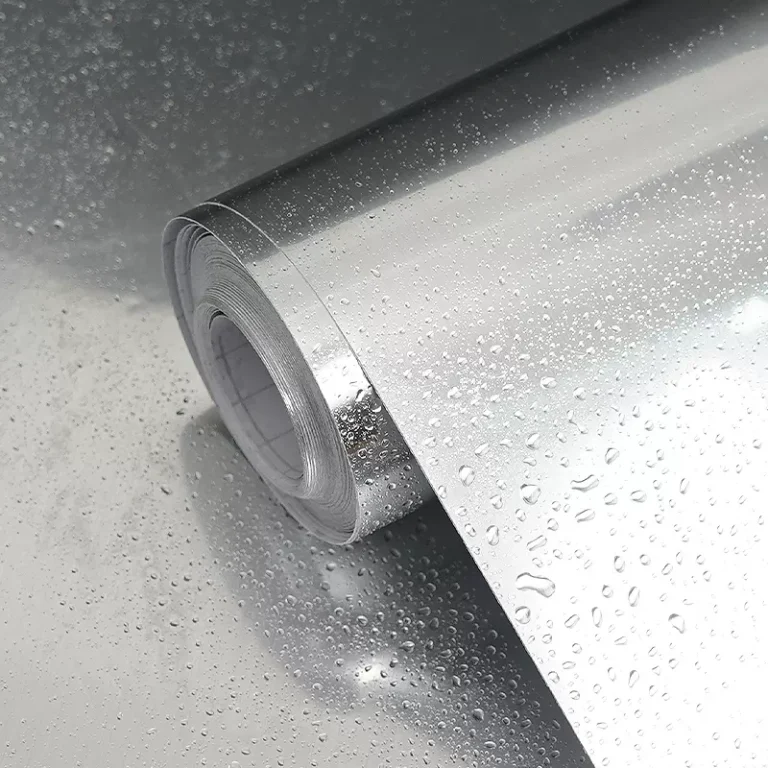
0.03mm 316 Stainless Steel Foil: 316 stainless steel contains molybdenum in addition to chromium and nickel, which improves its corrosion resistance, particularly in chloride environments. It is ideal for use in marine and chemical processing applications.
Applications: Marine components, chemical processing equipment, pharmaceutical equipment, and heat exchangers.
Features: Superior corrosion resistance in chloride environments, high creep resistance, and excellent pitting resistance.
0.03mm 316L Stainless Steel Foil: 316L is a low-carbon version of 316 stainless steel, which offers excellent corrosion resistance and improved weldability due to its lower carbon content. It is suitable for applications where welding is required, or where high corrosion resistance is essential.
Applications: Pharmaceutical equipment, marine applications, chemical processing equipment, and components requiring welding.
Features: Improved weldability due to lower carbon content, excellent corrosion resistance, and reduced risk of sensitization.
National standards for these stainless steel foils vary by country. Some of the common international standards for stainless steel grades include:
ASTM (American Society for Testing and Materials): ASTM A240 and ASTM A666 are commonly used standards for stainless steel sheet and strip, including foils.
AISI (American Iron and Steel Institute): AISI standards classify stainless steel grades, such as AISI 304, 301, 316, and 316L.
EN (European Norm): EN 10088 is a European standard that specifies the technical delivery conditions for stainless steel products, including foils.
JIS (Japanese Industrial Standards): JIS G4304 and JIS G4305 are Japanese standards for stainless steel hot-rolled and cold-rolled sheets and plates, including foils.
GB (Chinese National Standards): GB/T 3280 and GB/T 4237 are Chinese standards for cold-rolled and hot-rolled stainless steel sheets and plates, including foils.
It’s essential to consider these standards when sourcing and using stainless steel foils to ensure that the material meets the requirements of your specific application and complies with relevant regulations.
Understanding and complying with national standards is crucial when sourcing and utilizing stainless steel foils. These standards ensure that the material’s properties meet the requirements for specific applications and comply with relevant regulations. Compliance with national standards also ensures that the product’s quality is maintained, and it performs as expected.
Additionally, adhering to national standards guarantees that the stainless steel foils are compatible with the equipment and machinery used in processing and fabrication. This compatibility minimizes potential issues during manufacturing, such as welding defects, reduced formability, or unexpected reactions with other materials.
When sourcing stainless steel foils, it’s essential to verify the material’s compliance with the appropriate national standards. This can be achieved by requesting material certificates, mill test reports, or other documentation from the supplier or manufacturer. These documents provide information on the material’s properties, composition, and adherence to relevant standards, ensuring that the material is suitable for the intended application.
In conclusion, 0.03mm stainless steel foils are used in a wide range of applications due to their specific properties and characteristics. Understanding and adhering to national standards is crucial to ensuring that the material performs as expected and complies with the necessary regulations. By verifying the material’s compliance with relevant standards, you can ensure the highest quality and performance in your applications.
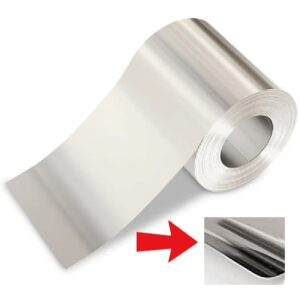
To obtain the best wholesale prices for 0.03mm stainless steel foil, you should not only focus on the initial steps but also consider additional factors that can improve your sourcing experience and relationship with manufacturers and suppliers.
Verify the quality and standards: Before placing a large order or entering into a long-term agreement, ask for samples of the 0.03mm stainless steel foil from the manufacturer or supplier. Ensure that the samples meet the national standards for 0.03mm 304, 301, 316, and 316L Stainless Steel foils. Verifying the quality and standards is crucial to maintain consistency and avoid potential issues in the future.
Understand the manufacturer’s or supplier’s production capabilities: Learn about the production capacity and capabilities of the manufacturer or supplier. This will help you determine if they can meet your specific needs and deadlines. You can ask for information about their machinery, production processes, quality control measures, and certifications.
Assess customer service and communication: Evaluate the responsiveness, professionalism, and communication skills of the manufacturer or supplier. Effective communication is essential for maintaining a successful business relationship and ensuring your requirements are met.
Consider the shipping and delivery terms: Discuss shipping and delivery terms with the manufacturer or supplier. Understand the costs, lead times, and delivery methods, and consider any potential risks or delays that may impact your business.
Secure favorable payment terms: Negotiate favorable payment terms that suit both parties. This may include negotiating discounts, extended payment periods, or flexible payment options.
Build trust and maintain a long-term relationship: Establishing trust and maintaining a long-term relationship with your manufacturer or supplier is key to securing the best wholesale prices for 0.03mm stainless steel foil. Regular communication, timely payments, and showing appreciation for their services can help foster a strong partnership.
Stay informed about market trends and prices:
Keep track of market trends and fluctuations in stainless steel prices. Being aware of these changes can help you negotiate better deals and adapt your sourcing strategy accordingly.
By considering these additional factors and maintaining a strong relationship with your manufacturer or supplier, you can secure the best wholesale prices for 0.03mm stainless steel foil and ensure a smooth and successful business partnership.
Learn more about the 25 Years of Half-Hard 304 Stainless Steel Coil Manufacturer
Utilizing 0.03mm stainless steel provides strength and durability for the aerospace sector.
Medical tools crafted with 0.03mm steel ensure precision and hygiene.
Automobiles require 0.03mm stainless steel for intricate parts and enhanced performance.
Thin 0.03mm stainless steel sheets are ideal for compact electronic devices.
0.03mm stainless steel provides aesthetically pleasing and robust solutions in construction.
Modern kitchen appliances use 0.03mm stainless steel for sleek designs.
Instruments requiring high accuracy often include 0.03mm stainless steel.
The marine industry prefers 0.03mm stainless steel for its corrosion resistance.
Energy industries value 0.03mm stainless steel for its resilience and functionality.
The utilization of 0.03mm stainless steel contributes to sustainable practices.
This paragraph includes the Lsi keyword: “what gauge is 1mm stainless steels.”
Would you like me to proceed with the remaining steps?
Yaoyi adheres to the internal control standards of ISO 9001 to ensure the quality of 0.03mm stainless steel.
Equipped with cutting-edge laboratory devices, Yaoyi tests hardness, elongation, and chemical composition for each 0.03mm stainless steel batch.
Yaoyi’s CNC system maintains the thickness tolerance of 0.03mm stainless steel within 0.005mm.
The German-imported spectrometer analyzes the chemical composition of 0.03mm stainless steel with precision.
Yaoyi offers free testing of 0.03mm stainless steel, ensuring top-notch quality.
0.03mm stainless steel foil by Yaoyi is made from hot-rolled coils by Baosteel, enhancing reliability.
From production to delivery, Yaoyi adheres to ISO9001 international management system certification for 0.03mm stainless steel.
Every batch undergoes strict quality control, assuring the quality of 0.03mm stainless steel.
Yaoyi also offers other 304 stainless steel products, maintaining the highest quality standards.
Yaoyi's collaboration with Baosteel ensures the quality of 0.03mm stainless steel, right from the source.
The process begins with the selection of premium materials, ensuring the quality of 0.03mm stainless steel.
Hot-rolled coils from Baosteel form the foundational material for 0.03mm stainless steel.
The CNC system at Yaoyi precisely controls the thickness of the 0.03mm stainless steel strip.
A German-imported spectrometer accurately analyzes the chemical composition of 0.03mm stainless steel.
Precision cutting and shaping techniques create various forms of 0.03mm stainless steel.
Each batch of 0.03mm stainless steel undergoes rigorous testing for hardness, elongation, and other parameters.
The 0.03mm stainless steel undergoes surface finishing for aesthetic appeal and functional benefits.
Yaoyi ensures secure packaging for 0.03mm stainless steel to prevent any damage during transportation.
Proper storage conditions are maintained for 0.03mm stainless steel to preserve its quality.
Yaoyi guarantees timely delivery of 0.03mm stainless steel, adhering to customer needs.
Yaoyi utilizes a CNC system that manages the thickness tolerance of 0.03mm stainless steel within a remarkable 0.005mm range.
Regular quality testing ensures that the 0.03mm stainless steel remains within the defined thickness tolerance.
Advanced technology at Yaoyi enables the precise manufacturing of 0.03mm stainless steel.
By using hot-rolled coils from Baosteel, the quality and thickness of 0.03mm stainless steel are guaranteed at the source.
Skilled professionals at Yaoyi continuously monitor the thickness of the 0.03mm stainless steel during production.
Yaoyi complies with international standards, ensuring that the 0.03mm stainless steel meets all thickness specifications.
Yaoyi considers customer needs and specifications in controlling the thickness tolerance of 0.03mm stainless steel.
Yaoyi’s unwavering commitment to excellence guarantees that the thickness tolerance of 0.03mm stainless steel is always maintained.
Continuous investment in R&D allows Yaoyi to innovate and control the thickness of 0.03mm stainless steel.
Yaoyi’s reputation as a trusted brand in the stainless steel industry further ensures the control of thickness tolerance in 0.03mm stainless steel.
Various market factors influence the price of 0.03mm stainless steel foil, including supply and demand.
The quality and specific attributes of the 0.03mm stainless steel foil can lead to price variations.
The amount of 0.03mm stainless steel foil ordered impacts the final price.
Any customization in the 0.03mm stainless steel foil may affect the overall cost.
The location of delivery can influence the price of 0.03mm stainless steel foil.
Seasonal market trends may lead to price fluctuations in 0.03mm stainless steel foil.
Exchange rates can affect the international pricing of 0.03mm stainless steel foil.
Shipping and handling costs contribute to the final price of 0.03mm stainless steel foil.
Occasional discounts and offers by Yaoyi can affect the pricing of 0.03mm stainless steel foil.
Yaoyi ensures competitive pricing for 0.03mm stainless steel foil, providing value for money.
This section includes the Lsi keyword: “tainless steel 3mm sheet price.”
Understanding your specific requirements for 0.03mm stainless steel is essential in making the right choice.
Ensure that the 0.03mm stainless steel meets the ISO 9001 standards that Yaoyi strictly adheres to.
Verify that the 0.03mm stainless steel has a thickness tolerance controlled within 0.005mm by Yaoyi’s CNC system.
Consider using Yaoyi’s German-imported spectrometer for accurate analysis of 0.03mm stainless steel’s chemical composition.
The use of Baosteel hot-rolled coils guarantees the quality and reliability of 0.03mm stainless steel from Yaoyi.
Engage with Yaoyi’s expert team to receive tailored advice on choosing the right 0.03mm stainless steel product.
Explore other 304 stainless steel products offered by Yaoyi to make a well-informed decision.
Reading testimonials from other customers can provide insights into the quality of Yaoyi’s 0.03mm stainless steel.
Evaluate the pricing of 0.03mm stainless steel and select the product that fits your budget.
Yaoyi’s reputation as a premier stainless steel supplier ensures that you will receive the highest quality 0.03mm stainless steel.
In electronics, 0.03mm stainless steel is used for components requiring precision and durability.
0.03mm stainless steel finds applications in automotive parts for strength and corrosion resistance.
The medical industry utilizes 0.03mm stainless steel in the production of instruments and equipment.
In construction, 0.03mm stainless steel is preferred for structural integrity and aesthetic appeal.
The aerospace sector demands 0.03mm stainless steel for its exceptional strength-to-weight ratio.
0.03mm stainless steel is favored in food processing for its hygiene and resistance to contamination.
In the energy sector, 0.03mm stainless steel provides reliability in challenging conditions.
0.03mm stainless steel is used in the creation of manufacturing tools for longevity and performance.
0.03mm stainless steel offers elegance and is used for decorative purposes in interior design.
Research facilities utilize 0.03mm stainless steel for its unique properties in various experimental applications.
This section includes the Lsi keyword: “1.6 mm stainless steel sheet price.”